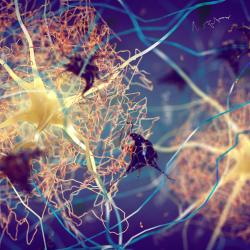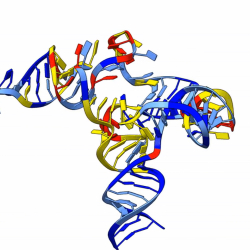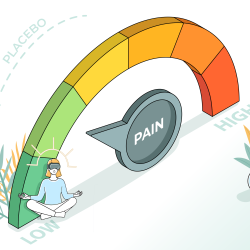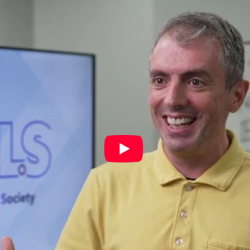Computer Science’s Dinesh Manocha and Chemistry & Biochemistry’s Lai-Xi Wang Elected to the National Academy of Inventors
University of Maryland Distinguished University Professors Dinesh Manocha and Lai-Xi Wang have been elected to the National Academy of Inventors’ (NAI) 2023 Class of Fellows, joining the ranks of some of the nation’s most prestigious and creative academic inventors.
“Congratulations to Distinguished University Professors Manocha and Wang on this outstanding achievement. This announcement is a clear sign of their accomplishments as scholars and inventors and the national reputation of the University of Maryland in pursuing scientific research with impact,” said Amitabh Varshney, dean of UMD’s College of Computer, Mathematical, and Natural Sciences (CMNS).
Manocha and Wang are two of 162 new Fellows who represent 118 research universities and governmental and nonprofit research institutes worldwide and collectively hold over 4,600 U.S. patents. They join 12 other faculty and staff members from UMD previously elected to the NAI, which was founded in 2010.
“This year’s class of NAI Fellows showcases the caliber of researchers that are found within the innovation ecosystem. Each of these individuals are making significant contributions to both science and society through their work,” NAI President Paul R. Sanberg said. “This new class, in conjunction with our existing Fellows, are creating innovations that are driving crucial advancements across a variety of disciplines and are stimulating the global and national economy in immeasurable ways as they move these technologies from lab to marketplace.”
The 2023 Fellows will be honored and presented their medals at the NAI’s 13th Annual Meeting on June 18, 2024, in Raleigh, North Carolina.
Dinesh Manocha
Manocha—an internationally recognized researcher in computer graphics, virtual reality, robotics and GPU computing—is a Distinguished University Professor in the Department of Electrical and Computer Engineering and holds joint appointments in the Department of Computer Science and the Institute for Advanced Computer Studies.
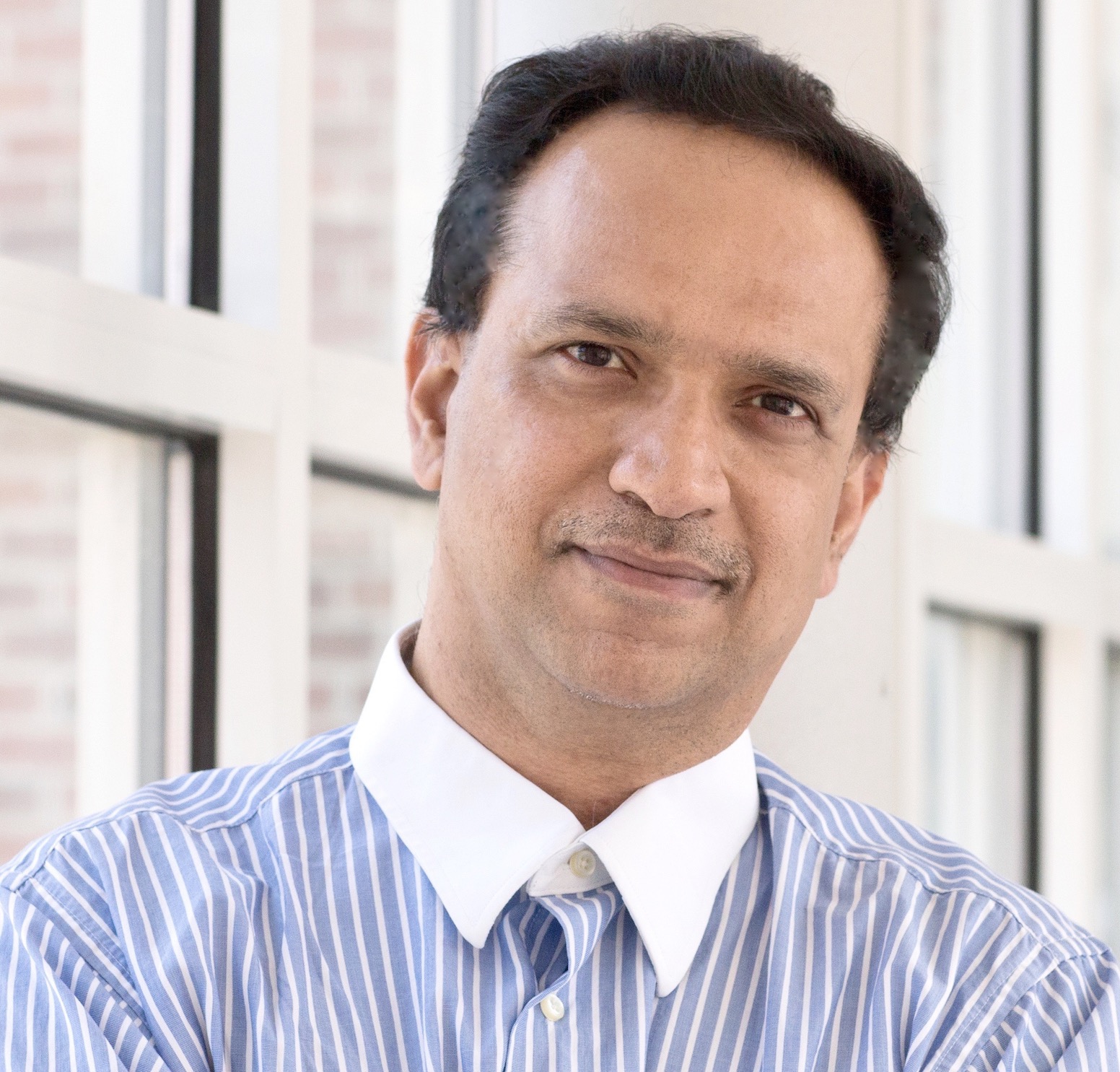
“I am honored to be selected to the rank of NAI Fellow,” said Manocha, who holds the Paul Chrisman Iribe Endowed E-Nnovate Professorship in Computer Science. “I am grateful for the strong support I have received from all the units at UMD, including the A. James Clark School of Engineering, the Office of the Vice President for Research, UM Ventures and CMNS.”
Throughout his career, Manocha has successfully transitioned his research into marketable technology through his research groups and startup companies. His outreach has resulted in software systems, robot operating systems and computer-aided design to be employed by over 60 companies, including several Fortune 500 companies.
His work in acoustic simulation and sound rendering has been widely adopted in industry and commercial products. His spinoff company Impulsonic was acquired in 2016 by Valve, a leading digital distributor for PC gaming, resulting in the company’s sound rendering system being incorporated in Valve’s Steam Audio SDK. His technology is also incorporated into Audio SDK and virtual reality products produced by Facebook/Meta Reality Labs.
Research in computer-aided design, simulation and virtual prototyping conducted by Manocha and his group has been installed in many well-known software systems and has been licensed to numerous high-profile corporations, including Intel, Microsoft, Kawasaki, BMW, Lockheed-Martin, Philips, Raytheon, Hughes Research Labs and Siemens.
Currently, a major focus of his research group is robotics and artificial intelligence. Robot motion planning and multi-agent simulation, including the first real-time high degree-of-freedom proximity systems and planners, have been developed into a robot operating system, which is used by many in the academic community and industry. His work in robotics, particularly in autonomous mobile robot navigation, has resulted in collaborations with Amazon and the U.S. Army Research Lab.
Manocha has published more than 700 papers and has co-authored 11 books and monographs. He holds 11 patents and seven pending patent applications. He has supervised more than 40 Ph.D. dissertations, and members of his research groups have received 20 best paper and Test-of-Time awards.
Among his honors are the National Science Foundation Faculty Early Career Development (CAREER) Award, the Office of Naval Research Young Investigator Award, the Honda Research Initiative Award, Google Faculty Awards, Facebook Faculty Awards, the Verisk AI Award, the Northrop Grumman Faculty Award and the Hettleman Prize for scholarly achievement. He is a Fellow of the Association for the Advancement of Artificial Intelligence, American Association for the Advancement of Science (AAAS), Association for Computing Machinery (ACM) and IEEE, and he is a member of the ACM SIGGRAPH Academy.
Lai-Xi Wang
Wang, a Distinguished University Professor of Chemistry and Biochemistry, is a leading carbohydrate chemist known for his expertise in glycoscience (the study of carbohydrates), enzymology and immunology. He develops new chemical and biochemical methods for understanding the biological functions of protein glycosylation and glycans, and he applies his research to the development of antibody-based therapeutics and an HIV vaccine.

“I am deeply honored to be selected as an NAI fellow,” Wang said. “It’s an important recognition of the hard work, creativity and innovative spirit of the Wang Lab in the past two decades. I appreciate my department, CMNS and the university for providing an outstanding platform for us to do both basic and translational research and to educate the next generation of scientists, scholars and inventors.”
In 2015, he founded the company GlycoT Therapeutics to develop new therapeutic technologies to fight human disease. The company has been awarded six Small Business Innovation Research grants in the past five years from the U.S. government, including one to develop an improved anti-inflammatory drug and one to develop site-specific antibody-drug conjugates for cancer therapy.
Wang has been awarded 20 U.S. and 14 foreign patents for his inventive methods and new technologies. He receives significant research funding from the National Institutes of Health (NIH) and currently holds three active NIH R01 grants and several other collaborative grants from the NIH and the Department of Defense.
Wang invented an efficient method for using enzymes to chemically produce antibodies with well-defined, homogeneous sugar groups. This work opened the door for studying how the structure of sugar groups affects antibody function at the molecular level. His method is now being used by researchers throughout the world.
Wang also developed a general platform technology for glycoengineering therapeutic antibodies, which has been widely adopted to produce homogeneously glycosylated antibodies for functional studies and therapeutic development. This method expanded to the production of site-specific antibody-drug conjugates for targeted cancer therapy.
In his HIV research, Wang was among the first to pursue the concept of a carbohydrate-based HIV vaccine. He and colleagues have been working to design an effective vaccine that targets weaknesses in the virus’s envelope glycoprotein structure. Following successful initial tests, they are working with collaborators to test the vaccine candidate in animal models.
Wang is a Fellow of the AAAS and the American Chemical Society (ACS). He received the 2014 Melville L. Wolfrom Award and the 2004 Young Investigator Award in Carbohydrate Chemistry from ACS and was inducted into the Johns Hopkins University Society of Scholars in 2009. Wang also received the Dean's Award for Excellence in Teaching in 2020 and the Norma M. Allewell Prize in Entrepreneurship in 2021 from CMNS.
Darcy Long contributed to this article.



